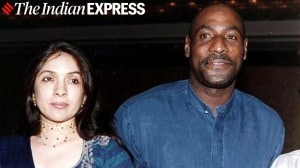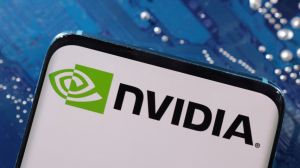A slice of ordinary life
If there is one thing which represents globalised India as nothing else does, it is the advertisement. And today's ads have a new characte...

If there is one thing which represents globalised India as nothing else does, it is the advertisement. And today’s ads have a new character. Many of them are quirky, witty and unexpected. In other words, they succeed in being, as they so fervently wish to be, “different”. But one does not have to look very far to see that underneath this difference many of the ads around us are, in fact, extraordinarily the same. They have a single message, and that message is summed up in the following specimen, which I understand was much applauded in the commercial world. It shows a fancy car (a Rolls Royce, perhaps?) with a caption underneath it saying, If you don’t know what this is, it’s not for you.
So with much of the advertising that surrounds us today. Far from saying, as one would expect, “This is for you,” it seems to concentrate on saying that it is not for you. Because it suggests that to own x or y you have to live in a plush house, own a pedigreed dog, go on expensive holidays. In other words, owning x car or y shirt actually means owning a lifestyle. And so the ad, instead of including us in the world it portrays, it actually succeeds in excluding us pretty thoroughly. It is not fanciful to say that it does to us what liberalised India is busy doing to much of the population.
All this has come together in my mind because of a recent series of ads which is remarkably different, and which immediately brings back an earlier world. It is for a particular kind of bread and, amazingly, it speaks to us in our own language. Here is a sample:
There are some things I like. Some I am not fond.
One of them is that man who calls himself James Bond.
I think he’s a sheikhchilli. Batman was more preferred.
What is this bakwaas about shaken and not stirred?
I don’t get impressed. Frankly, I am not thrilled.
It is like saying, `Toasted…and not grilled’.
Wouldn’t it be irritating, if you were always told,
The name is Gold…Harvest Gold?
Now this very witty poem allows us to feel, mercifully, that the consumers of this bread are just like us, even if nobody else is. Their English is Hinglish, their reaction to James Bond is bewildered, their knowledge of five-star life lags behind. And their middle-class problems are the same as ours:
My teenage daughter told me, `Papa I need a cell’.
I said, `Oye, pagal ho gayi hai kya? You can go to hell’.
She said there was pressure in school, everyone has a phone.
This was now status issue, ban gayi contention ki bone.
Our life was far simpler, we were not this bold.
We’d be happy with glass of water and a slice of Harvest Gold.
Indeed our life was far simpler, and these rhymes take me back to the time when it was so. Just as today’s ads reflect today’s attitudes, so the billboards of my Nehruvian childhood reflected a society which reached out, which included, which made you feel one with the rest. Remember the time when Air-India laughed at itself so much that you felt there was nothing to walking into one of its planes? When Utterly Butterly Amul seemed to beckon to every Indian child? When Tortoise Mosquito Coils depicted, through advertisements, homes that seemed to belong to Laxman’s Common Man? Well, Harvest Gold suggests to me that that world is not altogether lost. And very thankful I am to know it.
Photos


- 01
- 02
- 03
- 04
- 05





























